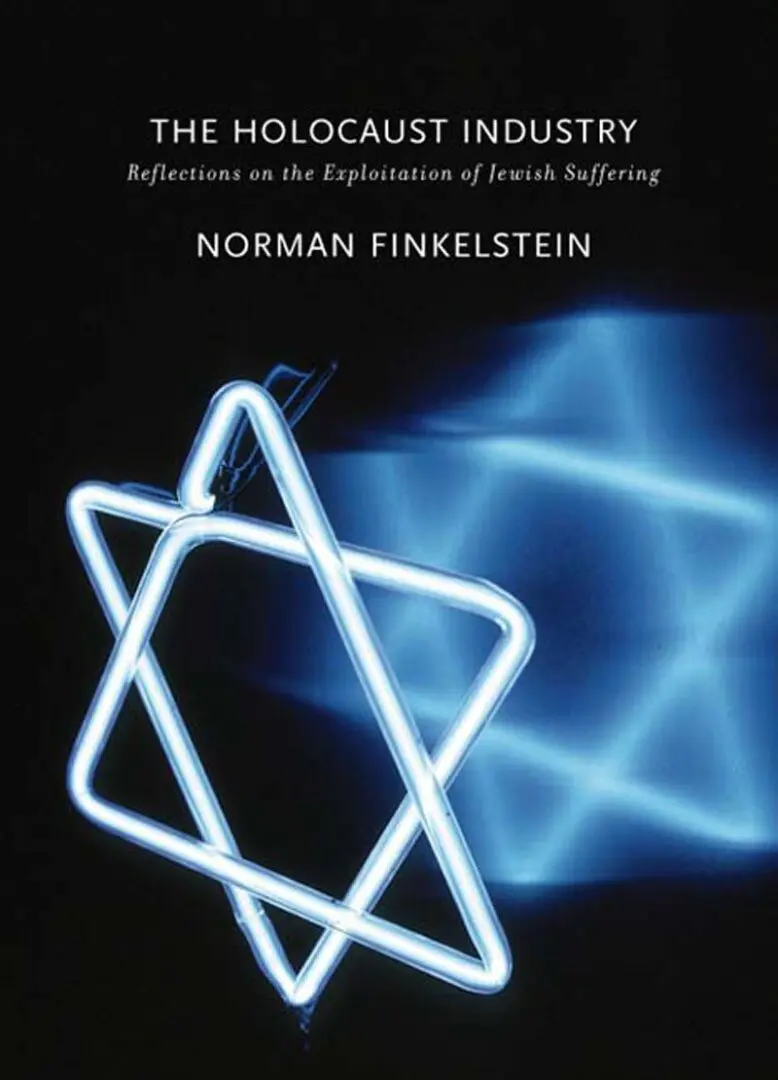
The Holocaust Industry: Reflections on the Exploitation of Jewish Suffering
(For professors, college students, teachers, and interested adults) The phrase “Holocaust Industry” is one with which most Americans are unaware. It became popular after Norman Finkelstein, a former professor at DePaul University, published his book, titled The Holocaust Industry: Reflections on the Exploitation of Jewish Suffering. In it, he presents extensive evidence of Jewish extortionist elites who profited from the Holocaust by pretending to care about survivors but used most of the money for themselves to solidify their financial and political gain.
Finkelstein writes that the US is the corporate headquarters of the Holocaust Industry and the New York Times is its main promotional vehicle, which advanced the careers of Jerzy Kosinski, Elie Wiesel, and Daniel Goldhagen. Kosinski’s book The Painted Bird and Wiesel’s book Night have both been shown by Jewish sources to be fiction. Goldhagen formulated a thesis that he believes is new, claiming that antisemitism is always present and remains obvious. However, he presents no empirical evidence to support his notion.
He traces the origins of the Holocaust Industry to the progressively more flagrant misuse of reparations monies that began from West Germany in 1952, which was a consequence of the Luxembourg Agreement. In time, the number of “Holocaust survivors” has been bloated to a senseless extent that now includes second and third generation individuals of those who experienced the Holocaust. Up to now, only 15 percent of reparations monies have actually gone to Jewish Holocaust survivors. The rest went to Jewish organizations that never went through the Holocaust but have arrogated to themselves the claim that they speak for Jewish victims. Finkelstein calls this a racket. He discusses the shakedown of the Swiss and how they paid out 1.25 billion dollars to avoid being labeled “anti-Semitic”, “hard-hearted”, “unwilling to come to terms with one’s past”, etc., even though claims of confiscated Jewish wealth in Swiss banks turned out to be almost completely baseless.
Finkelstein is critical of the notion that Jewish suffering is special and deserving of special public memory. He examines and rejects the arguments advanced to support the uniqueness of the Holocaust and finds them internally inconsistent and intellectually barren. He also dismisses the notion that the Holocaust is beyond rational understanding or that it is uniquely evil. Finkelstein shows how the current preoccupation with the Holocaust, among both non-Jews and Jews, did not begin until over 20 years after World War II, and he rejects the notion that this was a delayed reaction of the Jewish community to the trauma of the event.
NOTE: A considerable portion of this review is the analysis of Mr. Jan Peczkis, whose works and website are featured in the section “Polish-Jewish Relations” on this Resources page. The title of the article is “Jan Peczkis’s 1,800 book reviews will improve your understanding of Polish-Jewish relations”.
